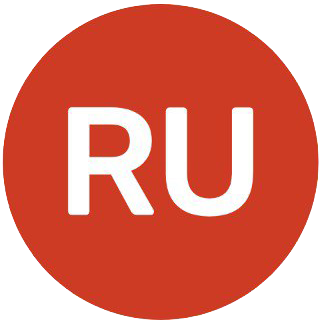A Roundtable Discussion "Local Self-Government and Cities of the Future" Took Place in Moscow
25/04/2024
On April 23, a round table on local self-government and the cities of the future took place in Moscow. Hosted at the Komsomolskaya Pravda Editorial Office, the event was organized in the run-up to the BRICS Civil Forum, following the Local Self-Government Day.
Moderating the event was Sergey Rybakov, Co-Chair of the Working group "Equitable Development Goals", General Director of Russian Nature Conservation Foundation "Nature and People", Founder and Programme Director at the ECUMENE Global Forum and Discussion Club.
The round table delved into various aspects of urban development, including infrastructure, ecology, innovative technologies, city financing and economy, as well as the human role in shaping future cities.
Participants highlighted the global imperative to enhance the sustainability of urban growth. With over 40% of the world's population residing in the BRICS countries, and approximately 1.5 billion people living in urban areas within these states, there is a pressing need to bolster collaboration among the BRICS cities. Such collaboration is essential for fostering global economic progress grounded in social equity, environmental equilibrium, and resilience to climate change.
The goal of BRICS partnerships is to advance one of the UN Sustainable Development Goals "Make cities and human settlements inclusive, safe, resilient, and sustainable" by emphasizing trust and equality as core values. To achieve this, it will be necessary to implement a circular economy, promote renewable energy, adjust to climate change, create investment regulations that will draw in small and medium-sized businesses, and ease global trade.
Future cities will need to be "green," ecologically sustainable, and "smart," in addition to being technologically sophisticated. Experts emphasized the need of protecting biodiversity and fostering the distinctive qualities of our planet during the conversation.
Participants also discussed tactics, administrative choices, and best practices aimed at improving urban living.
While positive transformations often extend beyond financial resources, experts and local self-government representatives emphasized the necessity of adequate funding for both major and small city development, advocating for collaborative efforts and joint programme implementation. It was emphasized that while consolidating successful management practices into standards is advisable, a tailored approach to each type of city and town is equally essential.
The goal of BRICS partnerships is to advance one of the UN Sustainable Development Goals "Make cities and human settlements inclusive, safe, resilient, and sustainable" by emphasizing trust and equality as core values. To achieve this, it will be necessary to implement a circular economy, promote renewable energy, adjust to climate change, create investment regulations that will draw in small and medium-sized businesses, and ease global trade.
Future cities will need to be "green," ecologically sustainable, and "smart," in addition to being technologically sophisticated. Experts emphasized the need of protecting biodiversity and fostering the distinctive qualities of our planet during the conversation.
Participants also discussed tactics, administrative choices, and best practices aimed at improving urban living.
While positive transformations often extend beyond financial resources, experts and local self-government representatives emphasized the necessity of adequate funding for both major and small city development, advocating for collaborative efforts and joint programme implementation. It was emphasized that while consolidating successful management practices into standards is advisable, a tailored approach to each type of city and town is equally essential.
In the course of the round table, participants underscored the importance of creating a variety of assessment tools, such as sustainable urban development rankings. Along with environmental and demographic metrics, these rankings should take into account aspects of urban, social, and economic infrastructure.
Representatives from various city administrations shared successful experiences in addressing a wide range of issues, such as infrastructure development, digital technology integration, preservation and restoration of historical city centres, air quality improvement, landscaping, expansion of green spaces, revitalization of single-industry towns, and collaboration with city-forming enterprises and research institutions to enhance residents' living and working conditions.
Follow-up discussions will continue at the national level both in face-to-face and online formats and will subsequently involve representatives from the BRICS member states.
Representatives from various city administrations shared successful experiences in addressing a wide range of issues, such as infrastructure development, digital technology integration, preservation and restoration of historical city centres, air quality improvement, landscaping, expansion of green spaces, revitalization of single-industry towns, and collaboration with city-forming enterprises and research institutions to enhance residents' living and working conditions.
Follow-up discussions will continue at the national level both in face-to-face and online formats and will subsequently involve representatives from the BRICS member states.

